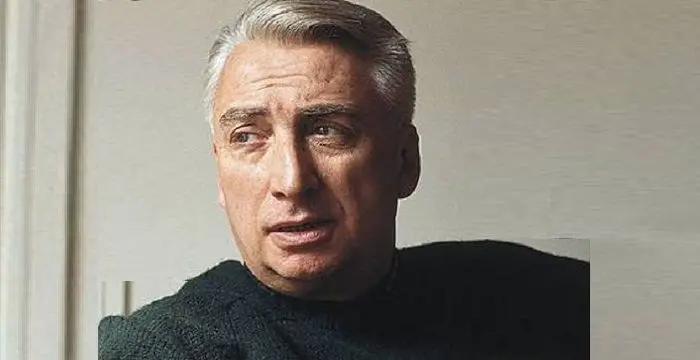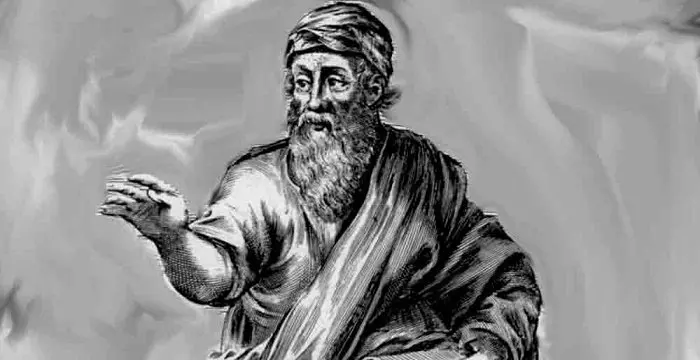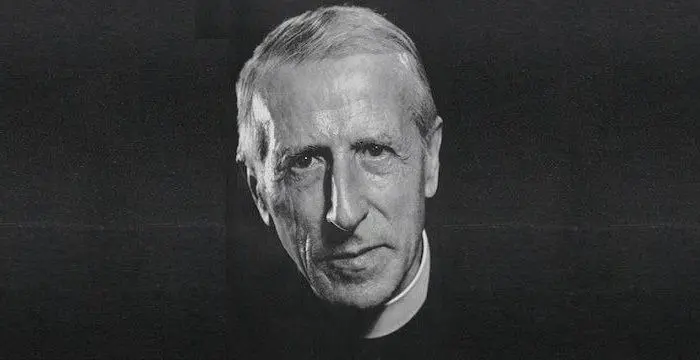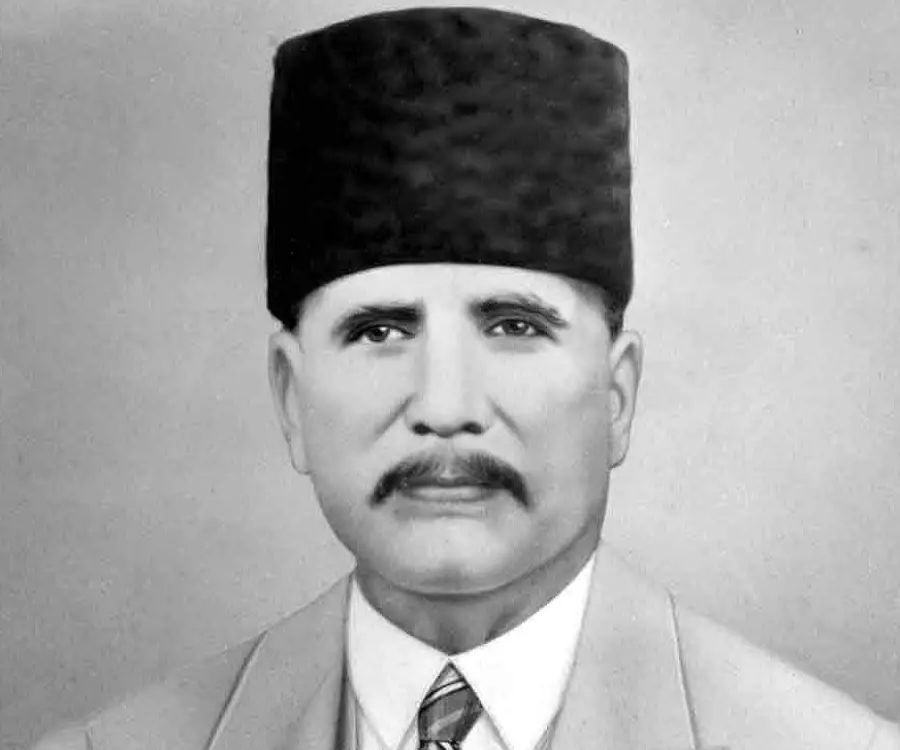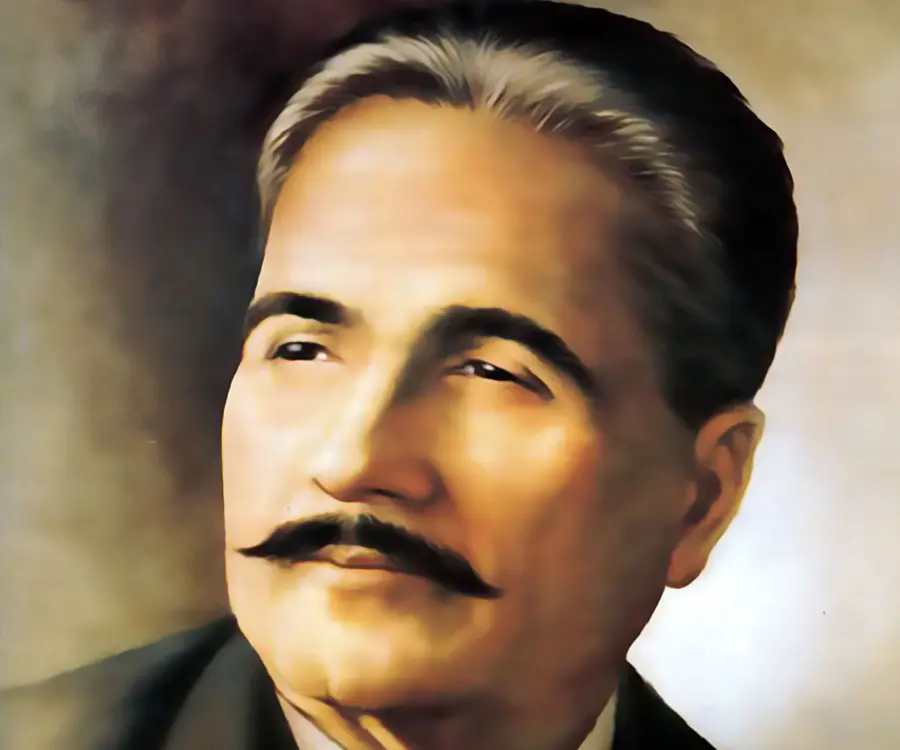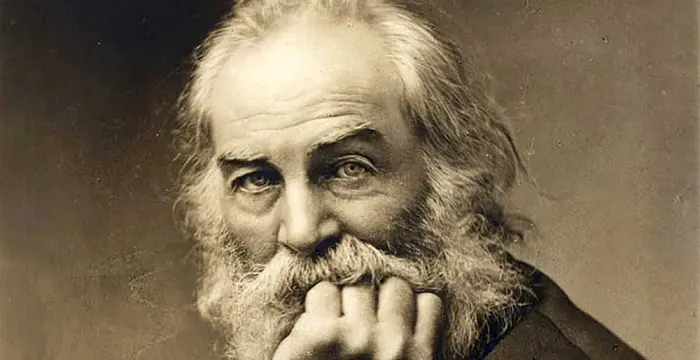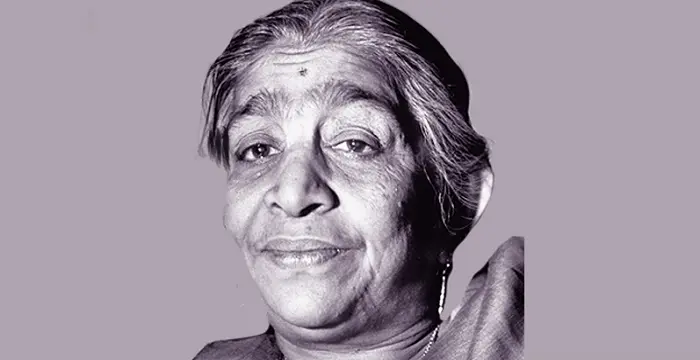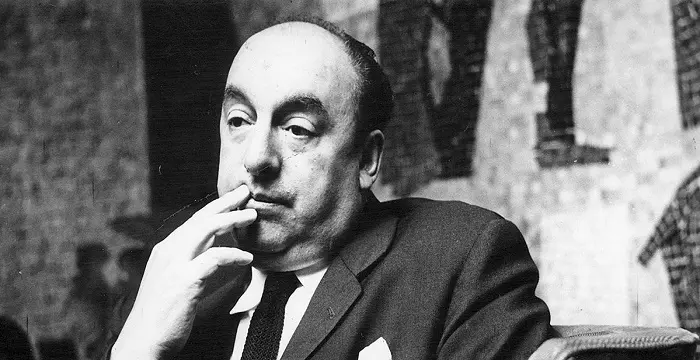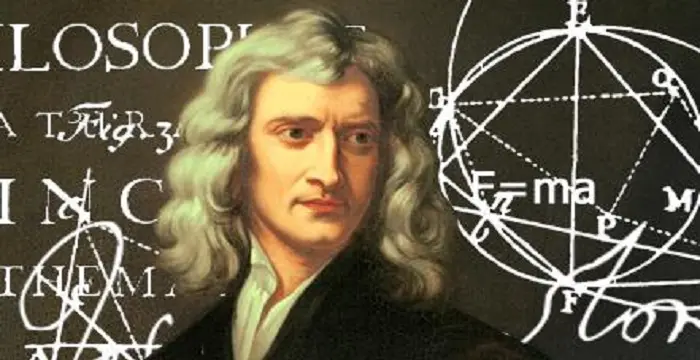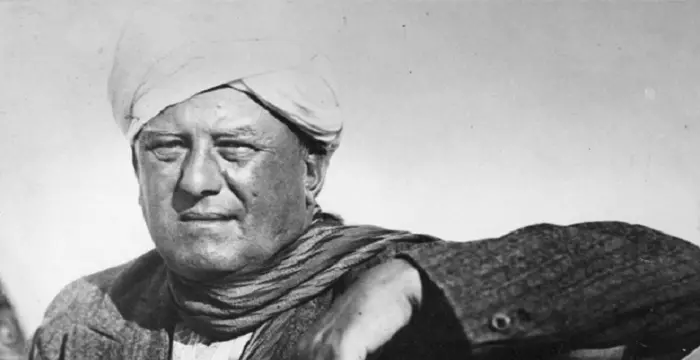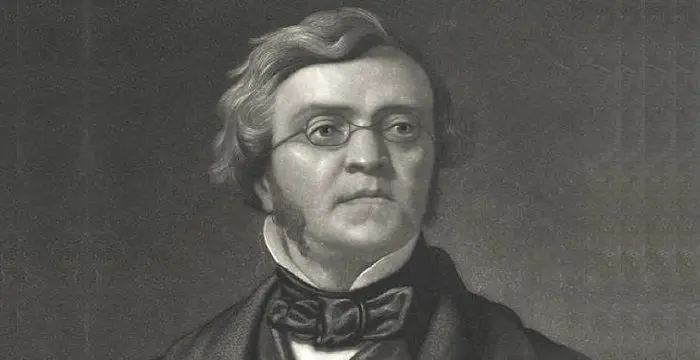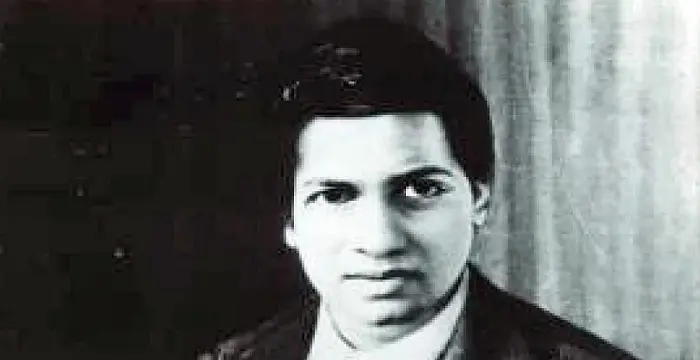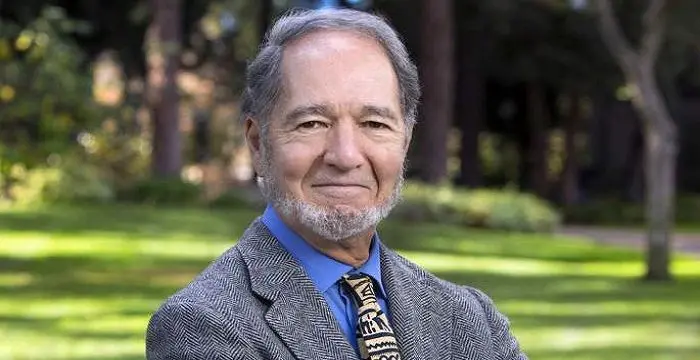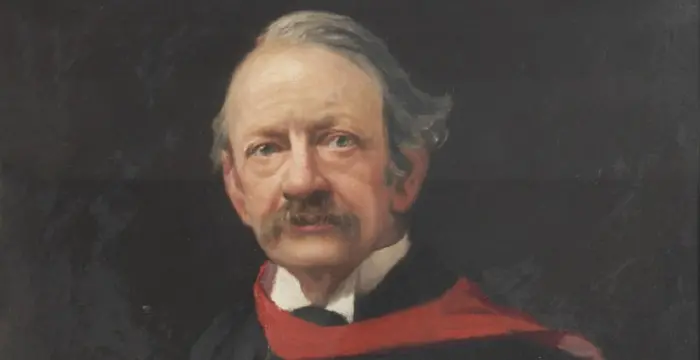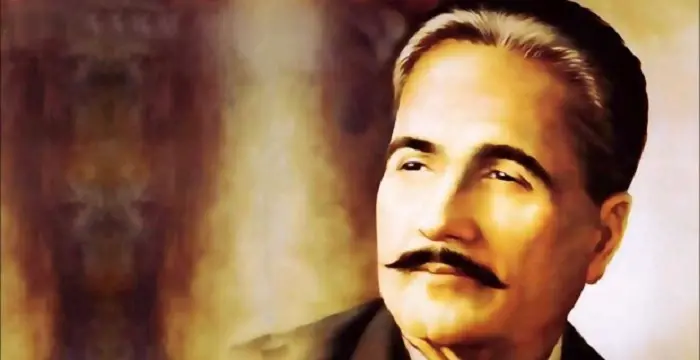
Muhammad Iqbal - Poets, Life Achievements and Family
Muhammad Iqbal's Personal Details
Muhammad Iqbal was a philosopher, poet and politician in British India and is regarded as being the inspiration behind the Pakistan movement
| Information | Detail |
|---|---|
| Birthday | November 9, 1877 |
| Died on | April 21, 1938 |
| Nationality | Pakistani |
| Famous | Trinity College, Cambridge, Intellectuals & Academics, Philosophers, Poets, Philosophers, Poets |
| Spouses | Karim Bibi, Mukhtar Begum, Sardar Begum |
| Known as | Allama Iqbal |
| Childrens | Aftab Iqbal, Javid Iqbal, Miraj Begum |
| Universities |
|
| Notable Alumnis |
|
| Birth Place | Sialkot, Punjab, British India |
| Religion | Muslim |
| Gender | Male |
| Father | Shaikh Noor Mohammad |
| Mother | Imam Bibi |
| Sun Sign | Scorpio |
| Born in | Sialkot, Punjab, British India |
| Famous as | Poet & Philosopher |
| Died at Age | 60 |
// Famous Philosophers
Roland Barthes
Roland Barthes was a French literary theorist, critic and semiotician. This biography profiles his childhood, life, works, achievements and timeline.
Pythagoras
Pythagoras of Samos was a Greek mathematician and philosopher. Read on to learn more about Pythagoras’s profile, childhood, life and timeline.
Pierre Teilhard de Chardin
Pierre Teilhard de Chardin was a famous French philosopher and a priest who was also known for his controversial writings. Read more about the life and works of this philosopher in the following article.
Muhammad Iqbal's photo
Who is Muhammad Iqbal?
Sir Muhammad Iqbal, also famously known as Allama Iqbal, was a famous poet, philosopher, lawyer and politician from British India. He is believed to be the inspiration behind the historical ‘Pakistan Movement’, in which he was one of the few leaders who first conceived the idea of Pakistan as a different nation for the Muslims. Iqbal was a very learned man who did a considerable part of his studies in India and some in England and Germany, where he was introduced to the philosophies of Goethe, Heine and Nietzsche. While studying abroad, he became a member of the London branch of the All India Muslim League. Iqbal practiced law in India for sometime after returning and later entered politics and was known for his legal expertise, political ideologies and groundwork and philosophical theories - he is fondly remembered as a great poet and scholar. With his books like, ‘Rumuz-i-Bekhudi’, ‘Zabur-i-Ajam’, etc. he became one of the most important contributors to the Urdu literature. For his talents and extraordinary personality, he was knighted by King George V in 1922.
// Famous Poets
Walt Whitman
Walt Whitman was an American poet, journalist and humanist. Read this brief biography to find more on his life & timeline.
Sarojini Naidu
Sarojini Naidu was an Indian freedom fighter and poet. Read this brief biography to find more on her life.
Pablo Neruda
Pablo Neruda was a Chilean poet, politician and Nobel laureate. Go through this biography to learn more about his profile, childhood, life and timeline.
Childhood & Early Life
Muhammad Iqbal was born in Sialkot, in the Punjab Province of British India to Sheikh Noor Muhammad and Imam Bibi. His father was not an educated man and worked as a tailor while his mother was a homemaker.
At the age of 4 Iqbal was introduced to religious studies and was sent to mosque to learn Qur’an. He learnt Arabic language at Scotch Mission College in Sialkot and pursued his intermediate from the Faculty of Arts, Murray College.
In 1895, Iqbal enrolled in Government College Lahore for his bachelors’, to study philosophy, English literature and Arabic. He also received his Masters of Arts degree from the same college and secured number one position in Punjab University, Lahore.
Career
Iqbal finished his Masters of Arts Degree and started his academic career as a reader of Arabic at Oriental College but within a short period of time, he became a junior professor of philosophy at Government College Lahore.
Iqbal opted for higher studies in the West and travelled to England to study on a scholarship from Trinity College, Cambridge, and received his Bachelors of Arts degree from the same in 1906.
In 1907, he went to Germany to pursue doctorate and earned PhD degree from the Ludwig Maximilian University, Munich. During the process, he got his doctoral thesis ‘The Development of Metaphysics in Persia’ published.
He returned to India and became an assistant professor at Government College, Lahore but the job did not provide enough financial support which is why he decided to turn to practice of law. He practiced as a lawyer from 1908 to 1934.
In 1919, he became the general secretary of Anjuman-e-Himayat-e-Islam, an Islamic intellectual and political organization based in Lahore, Pakistan, which he was an active member of many years before gaining this position.
In 1927, Iqbal was elected to the Punjab Legislative assembly and was later elected to preside over the session of the Muslim League. It was in these positions that he for the first time introduced the idea of ‘Pakistan’.
Due to his failing health, Iqbal stopped practicing law altogether in 1934 and was honored with a pension by the Nawab of Bhopal. He dedicated his life to his own spiritual upliftment and contributing to the Persian and Urdu literature.
Some of the books written by Iqbal are: ‘Payam-i-Mashriq (1923)’, ‘The Reconstruction of Religious Thought in Islam (1930)’, ‘Javid Nama (1932)’, ‘Pas Cheh Bayed Kard ai Aqwam-e-Sharq (1936)’, ‘Bal-i-Jibril (1935)’, ‘Zarb-i-Kalim (1936)’, etc.
Major Works
Iqbal was known for his legal expertise and political ideologies, but it was as a poet that he is still fondly remembered. With books like, ‘Rumuz-i-Bekhudi’, ‘Zabur-i-Ajam’, etc. his contribution to Urdu literature is immense.
Personal Life & Legacy
Iqbal married three times in his life: his first marriage (1895) was with Karim Bibi and he had two children with her - Miraj Begum and Aftab Iqbal. His second marriage was with Sardar Begum and third with Mukhtar Begum (1914).
He died in 1938 in Lahore after suffering for many years from various illnesses, which started with a mysterious throat illness that he developed on his trip to Spain and Afghanistan. His tomb was erected in Hazuri Bagh, Pakistan.
Trivia
He is regarded as the ‘Shair-e-Mashriq’ in most of Southeast Asia. He is also called ‘Muffakir-e-Pakistan’ and ‘Hakeem-ul-Ummat’.
He is Pakistan’s National Poet and his birthday is a national holiday there.
He is the author of ‘Saare Jahan Se Achcha’.
In Iran and Afghanistan he is famous as ‘Iqbal-e Lahori.
His son Javid Iqbal served as a justice on the Supreme Court of Pakistan.
Many public institutions in Pakistan are named after him. Some of them are the Allama Iqbal Campus Punjab University in Lahore, the Allama Iqbal Medical College in Lahore, Iqbal Stadium in Faisalabad, Allama Iqbal Open University in Pakistan, etc.
// Famous Intellectuals & Academics
Bertil Gotthard Ohlin
Bertil Gotthard Ohlin was a famous Swedish economist. This biography profiles his childhood, family life & achievements.
Emily Greene Balch
Emily Greene Balch was an American economist, sociologist and pacifist who won the 1946 Nobel Peace Prize. This biography of Emily Greene Balch provides detailed information about her childhood, life, achievements, works & timeline.
Martin Buber
One of the greatest philosophers to have ever walked on earth, Martin Buber contributions to philosophy is a long-standing one. Explore all about his profile, childhood, life and timeline here.
Muhammad Iqbal biography timelines
- // 9th Nov 1877Muhammad Iqbal was born in Sialkot, in the Punjab Province of British India to Sheikh Noor Muhammad and Imam Bibi. His father was not an educated man and worked as a tailor while his mother was a homemaker.
- // 1895In 1895, Iqbal enrolled in Government College Lahore for his bachelors’, to study philosophy, English literature and Arabic. He also received his Masters of Arts degree from the same college and secured number one position in Punjab University, Lahore.
- // 1895 To 1914Iqbal married three times in his life: his first marriage (1895) was with Karim Bibi and he had two children with her - Miraj Begum and Aftab Iqbal. His second marriage was with Sardar Begum and third with Mukhtar Begum (1914).
- // 1906Iqbal opted for higher studies in the West and travelled to England to study on a scholarship from Trinity College, Cambridge, and received his Bachelors of Arts degree from the same in 1906.
- // 1907In 1907, he went to Germany to pursue doctorate and earned PhD degree from the Ludwig Maximilian University, Munich. During the process, he got his doctoral thesis ‘The Development of Metaphysics in Persia’ published.
- // 1908 To 1934He returned to India and became an assistant professor at Government College, Lahore but the job did not provide enough financial support which is why he decided to turn to practice of law. He practiced as a lawyer from 1908 to 1934.
- // 1919In 1919, he became the general secretary of Anjuman-e-Himayat-e-Islam, an Islamic intellectual and political organization based in Lahore, Pakistan, which he was an active member of many years before gaining this position.
- // 1923 To 1936Some of the books written by Iqbal are: ‘Payam-i-Mashriq (1923)’, ‘The Reconstruction of Religious Thought in Islam (1930)’, ‘Javid Nama (1932)’, ‘Pas Cheh Bayed Kard ai Aqwam-e-Sharq (1936)’, ‘Bal-i-Jibril (1935)’, ‘Zarb-i-Kalim (1936)’, etc.
- // 1927In 1927, Iqbal was elected to the Punjab Legislative assembly and was later elected to preside over the session of the Muslim League. It was in these positions that he for the first time introduced the idea of ‘Pakistan’.
- // 1934Due to his failing health, Iqbal stopped practicing law altogether in 1934 and was honored with a pension by the Nawab of Bhopal. He dedicated his life to his own spiritual upliftment and contributing to the Persian and Urdu literature.
- // 21st Apr 1938He died in 1938 in Lahore after suffering for many years from various illnesses, which started with a mysterious throat illness that he developed on his trip to Spain and Afghanistan. His tomb was erected in Hazuri Bagh, Pakistan.
// Famous Trinity College, Cambridge
Isaac Newton
Isaac Newton was an English scientist and mathematician, who discovered gravitation and Newtonian Mechanics. Read this biography to find more on his life.
Aleister Crowley
Aleister Crowley was an occultist and ceremonial magician who founded the ethical philosophy of Thelema. This biography of Aleister Crowley provides detailed information about his childhood, life, achievements, works & timeline.
William Makepeace Thackeray
William Thackeray was an English novelist and satirist. Read this brief biography to find more on his life & timeline.
Srinivasa Ramanujan
Srinivasa Ramanujan was an Indian mathematician who made significant contributions to mathematical analysis, number theory, and continued fractions. Check out this biography to know about his childhood, life, achievements, works & timeline. .
Jared Diamond
Jared Mason Diamond is an American scientist and author reputed for his highly acclaimed and popular science books.
J. J. Thomson
J.J. Thomson was an English physicist and mathematician. This biography profiles his childhood, life, academic career, research and timeline.
Muhammad Iqbal's FAQ
What is Muhammad Iqbal birthday?
Muhammad Iqbal was born at 1877-11-09
When was Muhammad Iqbal died?
Muhammad Iqbal was died at 1938-04-21
Where was Muhammad Iqbal died?
Muhammad Iqbal was died in Lahore, Punjab, British India
Which age was Muhammad Iqbal died?
Muhammad Iqbal was died at age 60
Where is Muhammad Iqbal's birth place?
Muhammad Iqbal was born in Sialkot, Punjab, British India
What is Muhammad Iqbal nationalities?
Muhammad Iqbal's nationalities is Pakistani
Who is Muhammad Iqbal spouses?
Muhammad Iqbal's spouses is Karim Bibi, Mukhtar Begum, Sardar Begum
Who is Muhammad Iqbal childrens?
Muhammad Iqbal's childrens is Aftab Iqbal, Javid Iqbal, Miraj Begum
What was Muhammad Iqbal universities?
Muhammad Iqbal studied at Trinity College, Cambridge, Government College University, Ludwig Maximilian University of Munich, University of Cambridge, Murray College, Trinity College, Cambridge
What was Muhammad Iqbal notable alumnis?
Muhammad Iqbal's notable alumnis is Trinity College, Cambridge
What is Muhammad Iqbal's religion?
Muhammad Iqbal's religion is Muslim
Who is Muhammad Iqbal's father?
Muhammad Iqbal's father is Shaikh Noor Mohammad
Who is Muhammad Iqbal's mother?
Muhammad Iqbal's mother is Imam Bibi
What is Muhammad Iqbal's sun sign?
Muhammad Iqbal is Scorpio
How famous is Muhammad Iqbal?
Muhammad Iqbal is famouse as Poet & Philosopher
